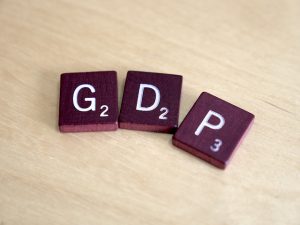Economic terms for law students – Christopher Arvidsson
The Cass Business School is part of City University London and it is ranked as one of the very best business schools in the world (4th in the UK and 18th in Europe). Last month Simon Hayley, a lecturer in finance from Cass, offered a unique lecture to the City law students where he introduced basic economic and financial concepts. The session was organised by the Commercial Awareness Club together with the City Law School and it was designed to assist students interested in a commercial law career.
As some students already know, having a commercial mind is becoming increasingly important for aspiring lawyers. Lawyers who are working with large profit-seeking companies will come equipped with an understanding of how those businesses work, and of the market in which they operate.
In this article I will summarise selected concepts covered by Mr Hayley; having a grasp of the following terms may help you in your understanding of the economic environment in which law firms and their clients operate in.

Gross Domestic Production (GDP)
GDP measures the monetary value of the total amount of items and services a country produces during a year. It is therefore beneficial for a country to have a high GDP and when the GDP is falling, the economy is in trouble. If the GDP is high it means that individuals can afford to consume and spend more money. This is positive for businesses as high consumption means more profit.
A higher GDP also marks a lower unemployment rate. This is because a higher level of production requires a larger workforce. A country’s GDP can be affected by trends such as population growth, high average incomes, investment in skills and technology. The level of GDP also correlates to recessions.
Recession
A recession can be described as an economic decline and during such period there is generally a drop in a country’s GDP. There will often be high unemployment rates and less consumption confidence (ie consumer spending). Businesses will also feel the impact of the recession. However some businesses will feel this more than others. For instance, people will often continue to spend money on necessities such as food, utilities, education and their health. In contrast, some parts of the economy will be more affected by reduced spending. People may feel less inclined to spend money on items such as expensive clothes, decorations and other luxury items. Furthermore, the investment sector and the building sector will be very affected by a recession and it is not uncommon to see a reduction in Merger & Acquisition deals. M&A is explained bellow.
What is the impact on law firms during a recession?
As we explained above, some parts of the economy will be more affected by an economic decline. If a company is making less money (which may be the case during a recession) it may seek to save money. Such companies may refrain from investing, make deals and participating in M&As. Law firms (especially commercial firms) are often making a profit advising on big deals between companies. Since a recession generally means fewer business activities (and deals) a commercial firm may find it troublesome to find work in these areas. On the other hand, some law firms may be less affected by a recession. A law firm whose core business is in areas such as wills and divorce may continue to have a steady flow of work. The reason being they are in a position to benefit from death and divorce which can be seen as inevitable parts of life, regardless of the market conditions.
Mergers and Acquisitions
Merger & Acquisitions (M&A) is a term covering a range of business activities. The term can be used to describe certain dealings (ex selling, buying and combining) between two companies. There are many reasons why companies may wish to participate in an M&A deal. It may be that two companies are seeking to merge in order to grow and gain a stronger market position. As we saw above, a recession often marks a reduction in the level of M&As. The reasons for this varies but a desire to save money in a harsh economic climate may be one. Lawyers are often involved during M&A deals and they are responsible for a range of tasks. Lawyers are often responsible for the due diligence process and may look at many questions which are of essential value to the deal. These may include finding out the company’s liabilities, whether anyone is suing the company or is about to sue the company.
EQUITY V DEBT
Companies must often raise money to be able to grow. This article looks at two such ways. First, using equity to grow (issuing shares) and second, raising capital through debt (ex bonds). Raising money through debt allows the owner to stay in control whereas issuing shares means that the company is shared with shareholders.
Equity/Shares
The term equity has various meanings and it is used in both financial and legal contexts (although with different meanings). In finance one can use the term equity to describe the value of an asset. For instance, if Adam opens up a small business and buys the business property with his own savings then Adam is the owner of that property. The property is an asset and this is Adam’s equity. Therefore, equity can be used to describe a company’s or a person’s ownership of an asset when all the debts of the asset has been paid off. This means that having a high equity is beneficial. Shares are also known as equities. Thus owning shares gives you a partial ownership of a company.
When a person is investing in shares he is buying ‘a share’ of that company. As an example, a company may issue shares in order to raise money and a person may want to buy shares to get ownership in a company they believe will do well. Shareholders are rewarded with dividends (sum of money paid to shareholders by the company). It shall be noted that someone who has shares in a company is ‘sharing’ the company’s profit. During a good year he is therefore receiving more money and during a less profitable year he is receiving less money. Being a shareholder also gives you voting power in the company. Finally, in general terms, the price of buying shares in a company may respond to the prospects of it performing well. If a company is likely to do well then the prices of its shares may go up and if a company is predicted to do less well then the share prices may drop.
Bonds
We saw that shares (or equities) are ownership in a company and the shareholders are sharing the profit of the company. If the company is performing well then they will be paid more dividends. In contrast, bonds are not equity but a form of debt. Here a company may raise money by issuing bonds. It is like purchasing a promise that money and interest will be paid back at a future date. A bondholder is not becoming a shareholder/owner of a company. A bondholder becomes a creditor and he is not sharing the profit of the company but he is always entitled to the amount he is owed together with interest. This is obviously advantageous when the company is making less profit as he is entitled to the same sum regardless. Owning bonds therefore comes with less risk but the detriment is that they come with less return during a profitable year.

